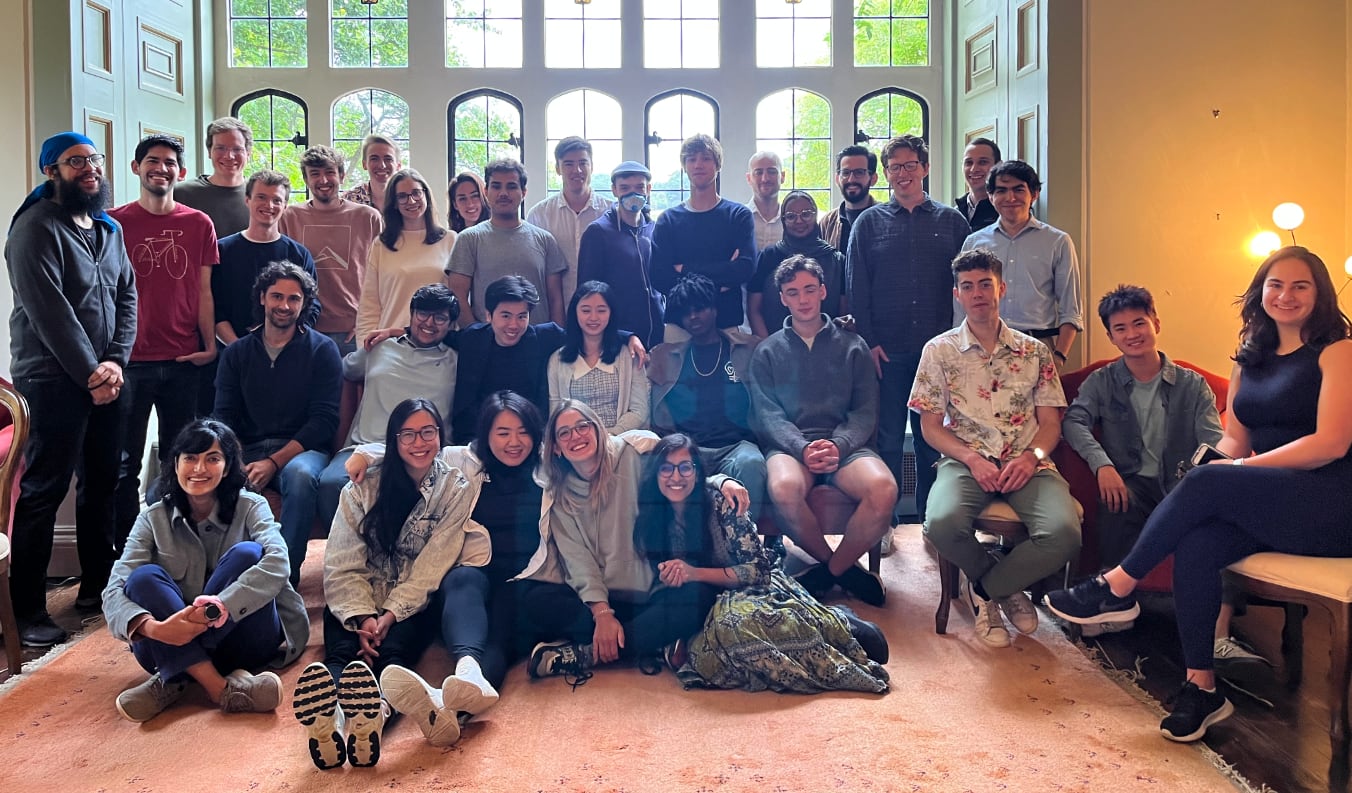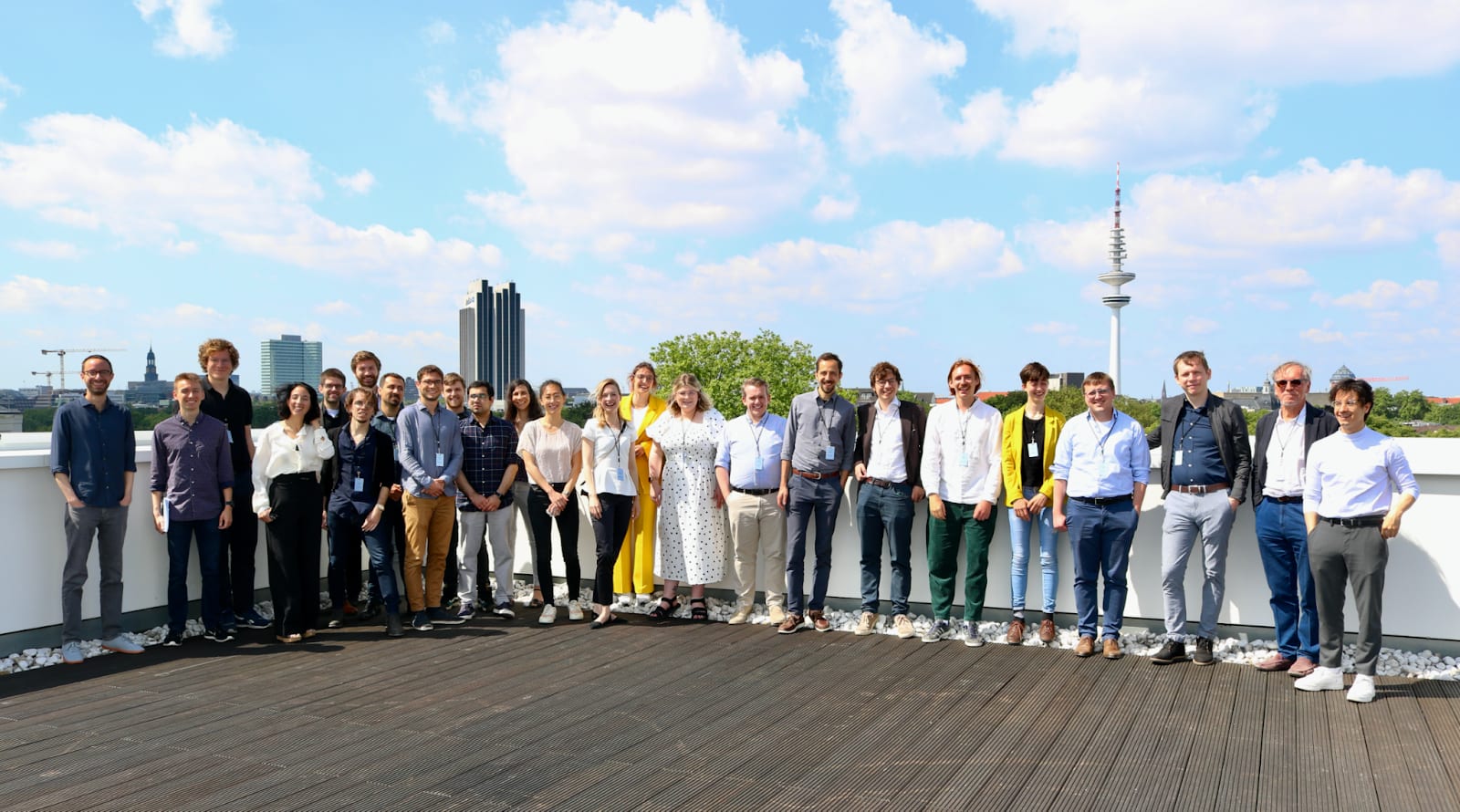Introduction
The Legal Priorities Project (LPP) is dedicated to building a global community of people passionate about using the law to protect future generations and mitigate existential risk. Through our flagship programs—the Legal Priorities Summer Institute and the Summer Research Fellowship—participants gain hands-on experience and develop the skills needed to make a meaningful impact in this field. In this overview, you will learn more about what it's like to participate in these programs, what to expect afterward, and what other initiatives we’ve run. We are excited to share the work and accomplishments of our talented participants and look forward to hearing from you if you would like to get involved!
Legal Priorities Summer Institute
The Legal Priorities Summer Institute (LPSI) is an intensive, week-long program to introduce altruistically-minded law and policy students and early-career professionals to projects, theories, and tools relevant to tackling critical issues affecting the long-term future.
LPSI is aimed primarily at individuals who want to learn about issues affecting the long-term future. Through a series of presentations, discussions, debates, and workshops, led by an array of experts, including government officials, academics, legal practitioners, philanthropists, and members of the judiciary, participants gain a better understanding of the current legal landscape and learn about the latest developments, trends, and best practices related to existential risk and global challenges.
Despite the program being highly competitive, we strive to bring together individuals from various backgrounds, countries, cultures, disciplines, and professional experiences. We aim to create an environment that promotes open-mindedness and encourages participants to consider alternative perspectives.
2022
LPSI 2022 attracted 473 applicants from across the globe (227 undergrads, 131 master’s, 29 JDs, 65 PhDs/JSDs, and 21 others), with a significant number coming from top-ranked institutions—200 (42%) from the world’s top 20 law schools and 113 (24%) from the top 5 law schools. 402 (85%) applicants and 14 (40%) participants had very little or no previous exposure to longtermism.
Thirty-five talented individuals were selected to participate in the program, representing eighteen countries and five continents, making the cohort extraordinarily diverse. You can meet our 2022 participants here.
Program highlights
- A talk on “Reflections on Longtermist AI Governance Research from a Global South Perspective” by Cecil Abungu (Centre for the Study of Existential Risk, Legal Priorities Project).
- A discussion panel on AI governance with researchers from the Centre for the Study of Existential Risk.
- A talk on “Catastrophic Climate Change” by Goodwin Gibbins (Future of Humanity Institute).
- A career planning workshop with an advisor from 80,000 Hours.
- A talk on “Developing an Impact Litigation Strategy to Limit Catastrophic Biorisk” by Laurens Prins (Legal Priorities Project).
Feedback from participants
All feedback and testimonials were submitted anonymously right after the event.
From 1 to 10, how likely is it that you would recommend the Institute to a colleague with similar interests to your own?
- 9.1 / 10
What was the most valuable experience from LPSI for you?
- LPSI gave me an opportunity to meet an amazing group of people. I met a group of people from the Global South, which has motivated all of us to bring forth Global South perspectives and collaborate on ways to bring these perspectives to the global avenue. Getting feedback and giving feedback to people was also a very valuable experience. It is impressive how much clarity you can get on ideas when you share them with people. I also formed a network of people who are now my friends—we keep in touch and give each other feedback and support. I am grateful for this.
- The network, being able to speak with experts, and gaining different perspectives on various topics.
- Learning from people later in their careers what paths to my goals in affecting long-term change can look like.
- The sense of community and the introductions to key individuals working on biosecurity.
Other testimonials:
- I have taken many actions already as a result of LPSI. These include a research collaboration with 5 colleagues and career planning. I started to draft job possibilities and the pros and cons of which of them. I have also noticed that I had many limiting thoughts that were making me less confident in my capabilities. I was able to reflect on those with colleagues during the summer institute, which helped me greatly.
- The event has given me the confidence and awareness I needed to shift from the career path I was on of training at a corporate law firm to pursuing jobs in policy research and advocacy.
- Thanks for all the hard work you all put into this. I had a great time — having five days set aside just to think about these issues and connect with people without worrying about anything else was invaluable. To have it all so well organized and thought through, especially with very generous, responsive, and flexible organizers, was fantastic.
- I expect to shift my career over the next few months, and attending the conference helped to catalyze thoughts I'd been having about it and to give me more structure in deciding what to do and how to do it. Meeting new people with similar interests has also given me new connections and opportunities for collaboration.
- I'm taking some actionable steps to answer research questions with new friends and colleagues from LPSI.
- The event unlocked a network of individuals that are like-minded, which I didn't have access to prior. I intend to collaborate with LPSI alumni for future research on democratic and constitutional reform.
- I have a much clearer career path now, which helped a lot research-wise. I finally decided on what programme to pursue and discarded others.
- I just wanted to thank you for the efforts put into organizing and coordinating LPSI. Personally, I immensely appreciate the opportunity and the overall management of the event. It was extremely helpful to meet smart people and some of the amazing folks behind LPP!
- LPSI was a highlight of my year! It really did help me rethink my career strategy, and I’ve decided to go by field and cast a broader net for roles. So I’m reaching out to folks in AI safety companies to get a sense of what might match / what I could grow into / what shortcomings I might need to address.
After LPSI
Four months after the program, we asked participants to share what positive outcomes they could trace back to the event. These were some of their answers.
- I started a working group on law and AI as a way to start exploring AI use and risks of using LLMs in the law — while not directly AI safety, it’s been a step to even start introducing many lawyers to it.
- I started a fellowship at LPP, joined initiatives shared in the Slack channel, and connected with other members of the community.
- I got looped into a very exciting project right after LPSI related to bio policy.
- LPSI assisted me in getting a research assistant position with a barrister and professor; I readjusted my career path and goals to pursuing postgrad research in law and tech before going into practice/politics; and I made contacts that I’ve reached out to for advice in career planning.
- I participated in Mexico EA Fellowship and worked on diversity issues; I continued working on algorithmic discrimination research; and I made meaningful connections with others from LPSI.
- I declined a job offer from a corporate law firm and am currently seeking policy-oriented work instead; I chose to write my masters dissertation on a topic which I hope has the potential to be impactful, relating to decision-making in collective action problems.
- I met a handful of people who I may try to collaborate with on projects in the future, and I was introduced to some work which I had not previously known about.
Summer Research Fellowship
Our Summer Research Fellowship (SRF) brings together outstanding law students, PhD candidates, and postdocs who carry out longtermist legal research for 8–10 weeks, supervised by a more senior researcher. Given the strong focus on research, the SRF is targeted primarily at graduate students and postdocs working in law, though students approaching the final year of a 5-year undergraduate law degree are also welcome to apply.
In 2020 and 2021, applicants were encouraged to suggest a research topic during the application process, and most participants worked on that same project during the SRF. However, in future editions, participants will select a research topic from a list curated by LPP and partner organizations, in order to increase the chances that relevant decision-makers will use the research.
2021
The SRF 2021 attracted 148 applicants from all over the globe, with a significant number coming from top-ranked institutions—24% from the world’s top 20 law schools and 13% from the top 5 law schools.
Fifteen researchers were selected to participate in the program, representing ten countries and four continents. You can meet our 2021 participants and learn more about their projects here.
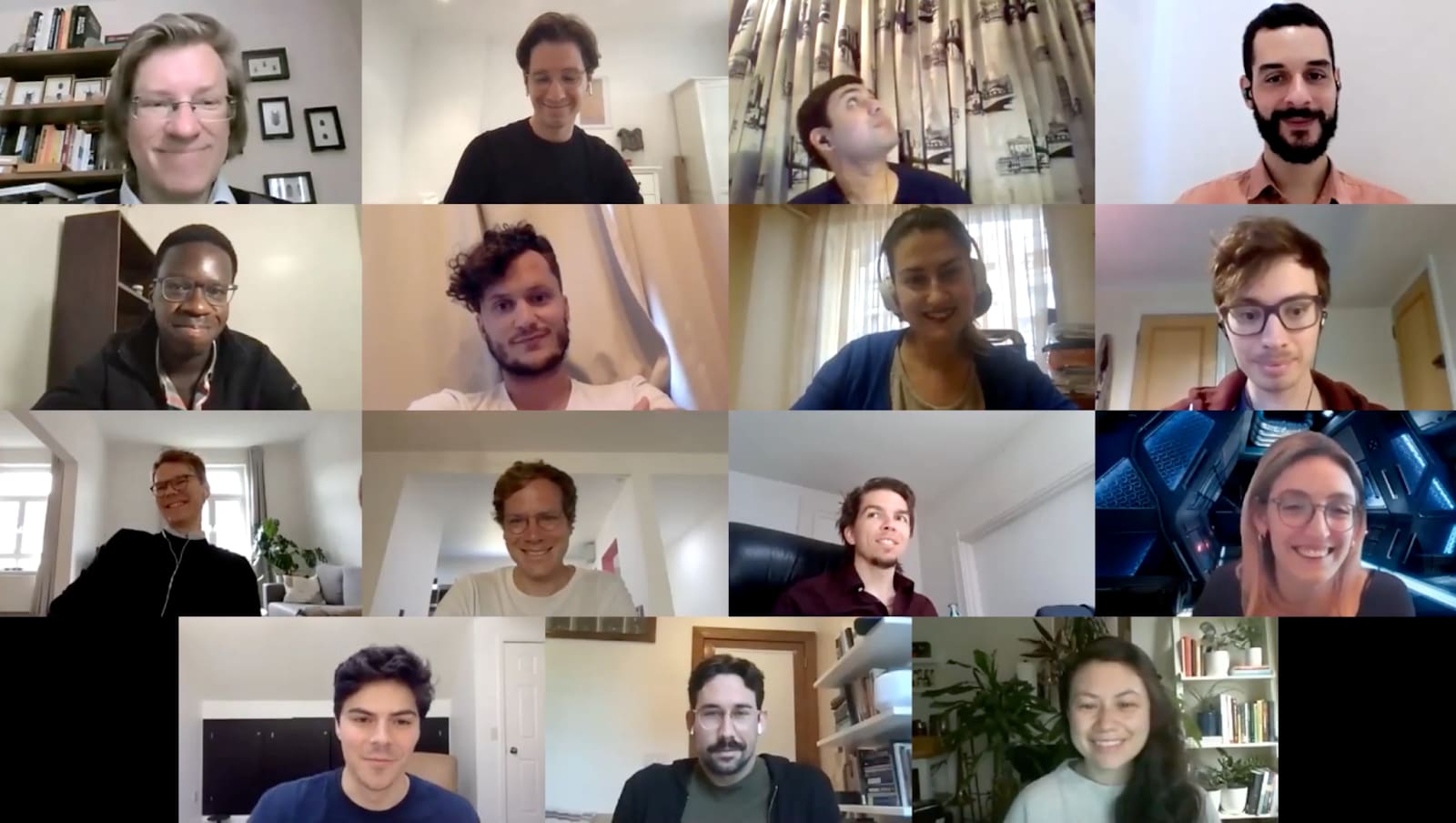
Selected research projects
- José Villalobos worked on a report exploring the potential for impact litigation to mitigate existential risk. This later informed an LPP project exploring concrete litigation strategies to reduce biorisks.
- Marta Kartawik tackled questions related to the economic regulation of artificial intelligence, such as the role of competition agencies or the importance of developing a supranational theory of regulation.
- Daniel Bertram studied legal frameworks to tackle extreme climate change.
Program highlights
- Fellows organized weekly discussion groups on different topics, including artificial intelligence, biorisk, meta-research, institutional design, and space governance.
- Teammates and fellows hosted various sessions to discuss research best practices, methodologies, and technology tools for research productivity.
- An advisor from 80,000 Hours hosted a workshop on career planning.
- Several Q&A sessions with senior researchers allowed fellows to dig deeper into topics related to longtermism and legal prioritization.
Feedback from participants
All feedback and testimonials were submitted anonymously right after the fellowship.
From 1–5, are you glad you participated in the fellowship?
- 4.5 / 5
What were the most valuable elements of the program for you? (2: very valuable; -1: harmful)
- The session on LPP’s theory of change (1.67)
- Talks at the Legal Priorities Lab (1.67)
- 1-1 calls with LPP researchers (1.63)
- The closing event (1.60)
- 1-1 calls with other fellows (1.55)
What surprised you the most about LPP or the fellowship?
- The openness and politeness of LPP staff—I was surprised to see how comfortable folks make you feel and how helpful the organization was along the way. I felt very much supported and that I could direct any query without worries. Often I thought that you would be wonderful colleagues.
- How much freedom we had to pursue our research; how accessible, friendly, and humble everyone at LPP is.
- I found it surprising that fellows came to the programme with rather diverse backgrounds and projects. That was nice.
- That LPP supports its fellows so generously with the stipend. I think the association with LPP carries a lot of weight in and of itself, so to receive such a generous amount of money was really wonderful.
- The flat hierarchies.
Other testimonials:
- This was one of the most fruitful periods of my academic career in terms of new ideas generated. Also, the various research tools shared by others had a remarkable impact on my time management and organization.
- I very much liked meeting passionate and positive-vibes people who were polite and friendly—the fellowship teammates made me feel comfortable asking for advice or discussing with them.
- The SRF gave me the opportunity, time, and space to look more closely at an approach to research that I think will now come to inform the perspective I take on a range of important issues. I love that LPP is taking a 'legal' perceptive to these global issues, many of existential concern to humanity. I hope I can stay formally involved with LPP.
- The SRF exposed me to a different way of thinking about legal research and to a variety of projects and ideas circling within that paradigm. Perhaps more importantly, I am now more aware of the importance of legal and global priorities for my PhD. I feel comfortable reaching out to the larger existential risk/longtermist community for ideas, support, and collaborations.
- The fellowship was a great opportunity to get familiar with the legal priorities scholarship and the broader longtermist research context - it was a very valuable experience for me. During the fellowship, I was able to 'pause' everything else and just take the time to calmly 'read to learn' again rather than read while feeling pressured to 'deliver'. Regarding the substance of the agenda, it made me rethink certain aspects of my career path and consider choices that I would not think of before the fellowship, e.g., I could design a legal priorities module in the university if given the opportunity in the future.
- I used to feel bound to the field where I had done my PhD and now feel like I have other exciting career paths. I'm also grateful for the time to work on a paper I had been wanting to write (and hopefully publish) for a long time. One of my key takeaways from the fellowship was meeting the other fellows—all brilliant individuals, both professionally and personally. I hope to continue developing those relationships in the future.
- LPP staff are incredibly kind and helpful! I would've loved to see more community building amongst the fellows themselves.
- I loved the culture of the SRF. I am someone who works best in environments that strike a fine balance between serious and casual. For me, the fellowship fell in that precise sweet spot.
- I really liked how ready other fellows and LPP staff were to help and how interested everyone was in other people's projects and ready to provide any kind of support.
After the SRF
The SRF 2021 opened up new opportunities for the participants, including, among others:
- Matthijs Maas and José Villalobos joined LPP as full-time researchers.
- Matthijs Maas published a sequence on Strategic Perspectives on Transformative AI Governance, which he worked on during the SRF.
- Amal Sethi co-organized the Multidisciplinary Forum on Longtermism & the Law.
- Piotr Bystranowski continued to collaborate with LPP researchers, with whom he plans to publish a paper on “Experimental studies on the effectiveness of legal norms to reduce catastrophic risk.”
- Daniel Bertram’s work on extreme climate change will be featured as a new chapter in LPP’s research agenda.
- Two of Colin Bradley’s fellowship projects were accepted for publication—“Solidarity, Legitimacy, and the Janus Double Bind” (Yale Law Journal, 2022) and “The Petition Clause and the Constitutional Mandate of Total-Population Apportionment” (Stanford Law Review, 2023).
2020
Before LPP’s official launch in late 2020, we organized the first edition of the SRF, which attracted 72 applicants from all over the globe, with a significant number coming from top-ranked institutions—63% from the world’s top 20 law schools and 39% from the top 5 law schools.
Six researchers were selected to participate in the program. You can meet our 2020 participants and learn more about their projects here.
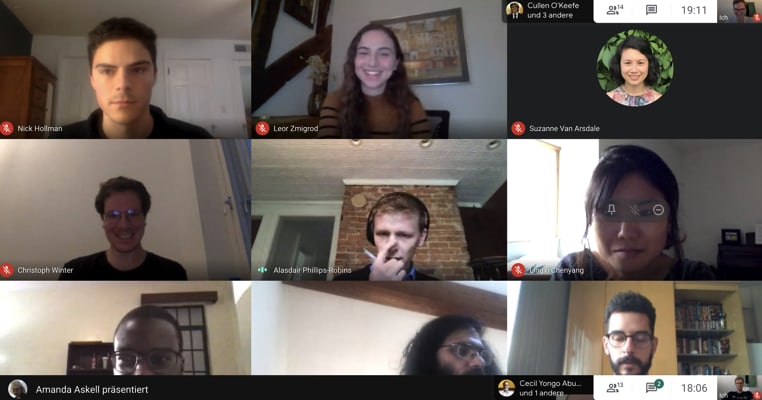
Feedback from participants
All feedback and testimonials were submitted anonymously right after the fellowship.
From 1–7, how much did you enjoy the SRF?
- 6.8 / 7
From 1–7, would you recommend an interested peer participate in the SRF?
- 7 / 7
Other testimonials:
- The organizers did a terrific job—the SRF and events were very well organized, and there was a great support structure in place with everything from RAs to feedback on work to individualized support when needed, regular meetings, follow-ups, etc. I'm extremely impressed with the organization and everything around it. I was very fortunate to be part of a fantastic group of SRFs—everyone's research was so interesting. Projects were so different, yet there were plenty of opportunities for productive overlap, etc. SRFs' research really showcased the breadth of legal priorities research; there was a greater range of topics and methodologies than I have come across at previous events I've attended. Participants (including organizers) were extremely collegial and constructive (super helpful feedback, great questions, and so on). The organizers also created a very supportive, friendly, open-minded, and welcoming environment for sharing ideas, which I was very impressed with. The SRF was a great experience—thank you!
- The guidance, help, and collaboration were wonderful.
- Everyone was friendly and good to work with.
After the SRF
The SRF 2020 opened up new opportunities for the participants, including, among others:
- Cecil Abungu joined LPP as a Research Affiliate and went on to receive grants to continue his work on longtermism, including organizing a fellowship for exceptional students in Africa.
- Lisa Forsberg joined LPP as a Research Affiliate.
- Alasdair Phillips-Robins continued to think about issues related to the role of the US government in reducing catastrophic risks and went on to win the first prize in the 2022 LPP Writing Competition (submissions were anonymized, and LPP staff did not judge entries).
Other initiatives
Multidisciplinary Forum on Longtermism and the Law 2022
In June 2022, we organized the first-ever conference on Longtermism and the Law, co-hosted with Amal Sethi (University of Hamburg), who was inspired to run the event after engaging with longtermism during our 2021 Summer Research Fellowship. Thirty participants from around the world discussed legal strategies for tackling issues relevant to the long-term future, including pandemics and artificial intelligence. Selected submissions were published as a blog symposium on Verfassungsblog, an influential peer-reviewed, academic forum on constitutional law and policy.
From 1 to 10, how likely is it that you would recommend the forum to a colleague with similar interests to your own?
- 8.9 / 10
Other testimonials:
- The event was really great; I enjoyed it so much! Lots of brilliant people and plenty of time to connect and discuss. I have no complaints, only praise.
- I received many good ideas and criticism; food for thought for further research and helpful changes and clarifications that I could include in my research.
- I think everything was excellent. I especially appreciated having a lot of time for discussion and socializing.
- The event was very useful for figuring out which people might be interesting partners for collaboration and whose work I'd like to know more about.
- Overall, I was very impressed with the organization. Everyone was easy to talk to, and it felt like I had an opportunity to speak to everyone without it being too small. Very excellent, in my view.
Follow-up: Eight months after the Forum, what positive outcomes can you trace back to the event?
- I met several prominent people in the law and longtermist space that I had never met before. The conversations I had with them made me think more deeply about how best to positively impact the long-term future, and I have stayed connected with some of them after / as a direct consequence of the event. I also published a piece that directly grew out of the blog post and presentation for the event. Presenting and getting feedback on my post helped me think better about how best to frame longtermist ideas to a general audience.
- We have received valuable feedback on our work on "Negative Human Rights as a Basis for Long-term AI Safety and Regulation" and incorporated it into the resulting paper, which was now accepted for publication in the Journal of Artificial Intelligence Research.
- The two pieces I published in Verfassungsblog became full papers, which are now submitted.
- Good impact—I submitted a grant and published a paper (and more in the pipeline).
- While finishing my PhD project in 2022, I have been thinking a lot about the concepts of longtermism and legal longtermism. Although I did not shift my research fundamentally (as I had already almost finished it at the time of the Forum), I included some interesting and focused ideas I got during the Forum into my introduction and some of my chapters and footnotes.
- This event helped connect me to some AI governance researchers, which has been helpful.
Global Priorities Research Across the Disciplines 2022
In 2022, we co-organized a workshop at the Global Priorities Institute on global priorities research in law as part of a larger workshop on “Global Priorities Research (GPR) Across the Disciplines” that included psychology, history, and law. We benefited greatly from discussions with GPR researchers in other fields, which represented the kind of dialogue we hope to preserve as the field grows.
University reading groups
In late 2021, we started offering ~US$1,500 stipends for students at ITAM to organize one-semester-long reading groups on longtermism and effective altruism. Some previous group organizers and participants went on to receive additional external funding to support their work from FTX and the Effective Altruism Infrastructure Fund, including:
- Field-building work in Latin America (and Mexico in particular), including EAGxLatinAmerica.
- Becoming a Next Generation Fellow on Future Generations at the United Nations Foundation and a “Future Generations Global Ambassador” at the Office of the Future Generations Commissioner for Wales.
We believe this is a cost-effective method of opening doors to talented students worldwide who want to use their careers to tackle some of the world’s most pressing problems. Our close ties to ITAM have made it easy to run these pilot groups, but we would be excited to run similar programs in other countries if operational capacity allows.
Law & Longtermism Dinners
We have organized several informal dinners during the EA Global conferences we have attended. Anyone interested in law and longtermism is welcome to join and meet LPP teammates and other like-minded individuals in a relaxed atmosphere. Turnout has ranged from 15–40 people. Attendees are typically other EA Global participants with a background in law and policy.
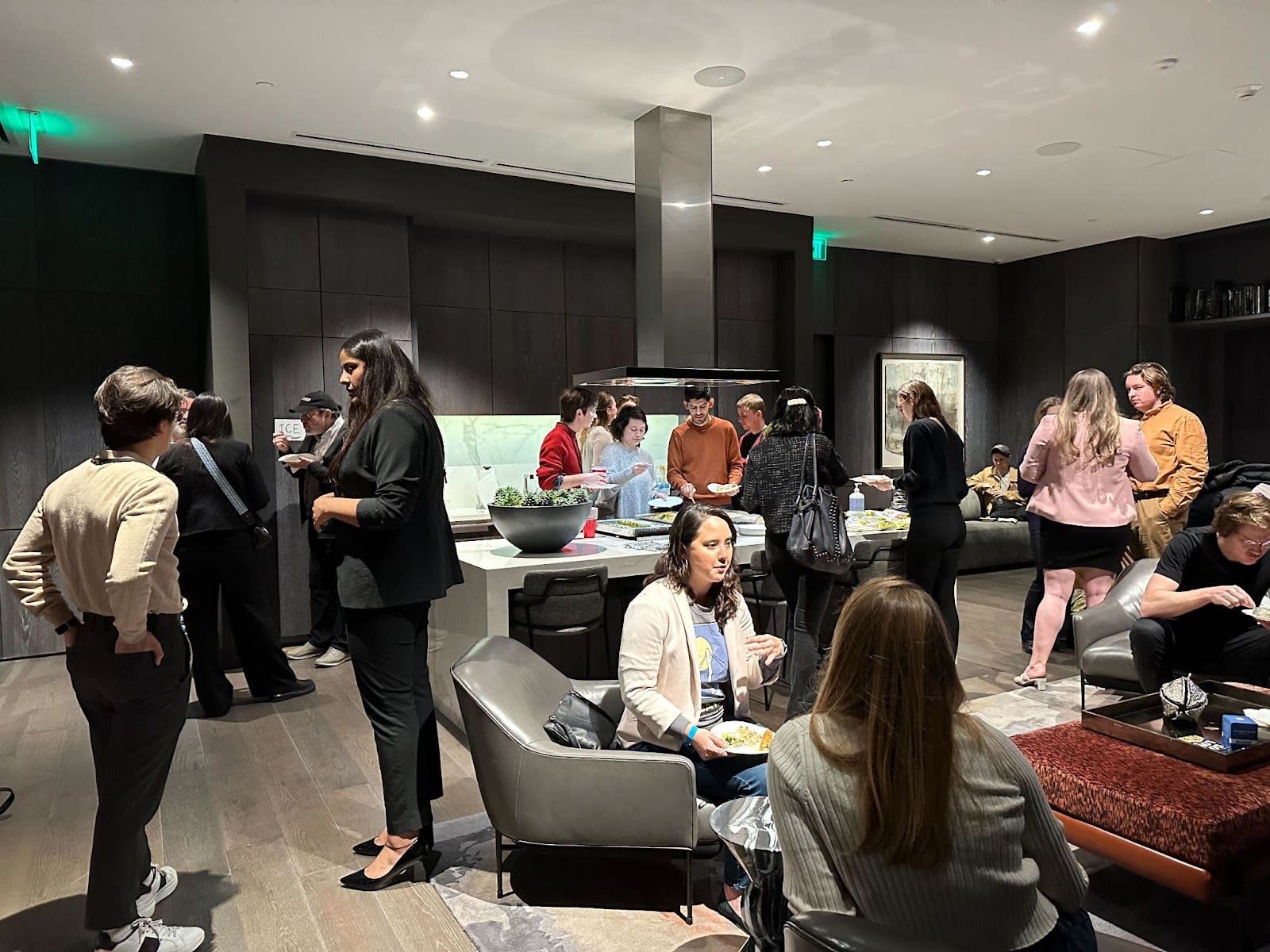
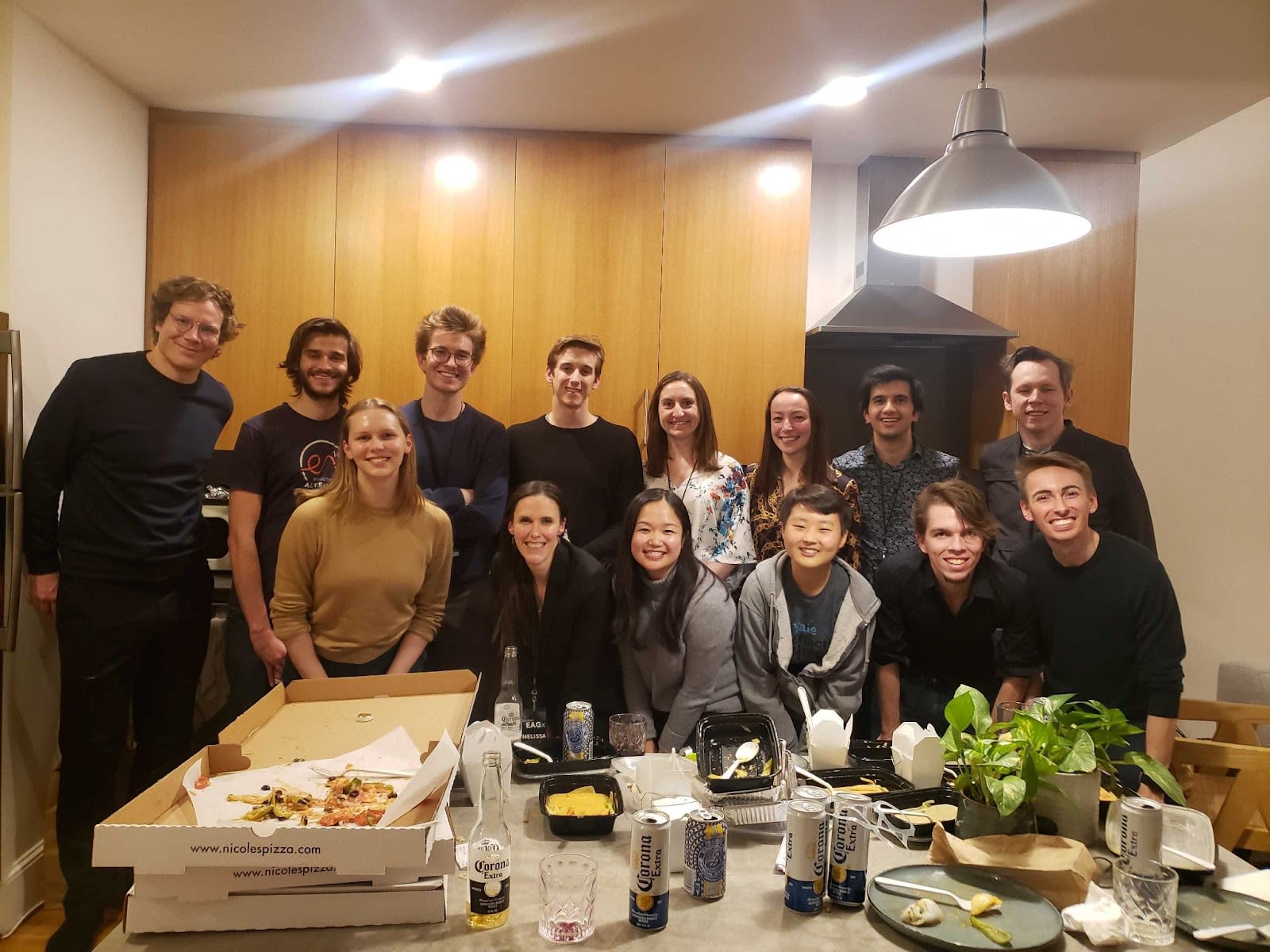
Law & Longtermism Network
In 2021, we launched the Law & Longtermism Network on Slack, open to anyone interested in engaging more closely with the field of legal longtermism. Researchers, students, policy-makers, and legal practitioners of all backgrounds are welcome to join. The network has two main goals:
- Foster collaboration among its members: Members can meet and get in touch with other members very easily and use the platform to collaborate on projects or discuss specific subtopics.
- Facilitate the exchange of information: Members will learn about new exciting research, events, and job opportunities related to legal longtermism.
Thank you to everyone who has gotten involved in one way or another. We are excited to see how the field of legal longtermism continues to grow!

